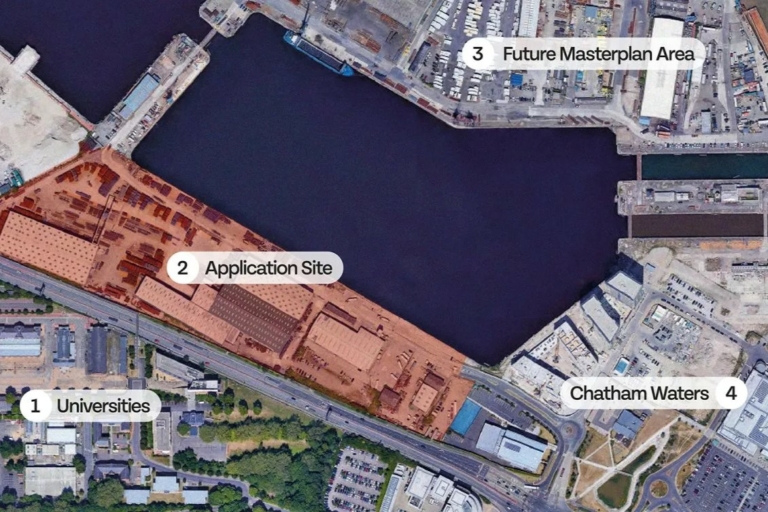BPE Solicitors consider the latest step in the Renters Reform Bill and what landlords and tenants can expect this year

As the Renters Reform Bill will likely make fundamental changes to the private rented sector, Natalie McMahon and Santos Hau, in the BPE Litigation team are watching the updates unfold with interest, as it will have a huge impact on both landlords and clients.


On 16 June 2022, the Secretary of State for Levelling Up, Housing and Communities, Michael Gove, published his department’s long awaited White Paper on proposed reforms to the private rented sector, as part of the Government’s pledge to recalibrate the private rental sector, to make it fairer for both landlords and tenants.
The White Paper comes amidst concerns from both landlords and tenants as to the state of the present market. Landlords are struggling to maximise rental yield, with interest rate hikes pushing mortgage costs beyond levels reasonably recoverable from tenants through contractual rent review clauses. Tenants on the other hand, are concerned with the cost-of-living crisis, with the prospect of retaliatory evictions looming over their heads, should they dispute rent increases.
We summarise the key proposals from the Government’s White Paper below.
- Abolishing of section 21 ‘no-fault’ evictions and new grounds for possession
Currently, landlords can serve a notice under section 21 of the Housing Act 1988 to end Assured Shorthold Tenancies (“ASTs”) at the end of its contractual term, without providing any reason for doing so.
The Government proposes to remove this power, and instead, landlords will need to have a reasonable ground by law, to terminate a tenancy. This is intended to provide more stability and security for tenants renting from private landlords, without the fear of being uprooted at the end of their tenancy agreement.
So how can a landlord terminate a lease and take back possession of their property?
Although the above proposed reforms appear to be weighted heavily in tenants’ favour, the Government do appear to recognise the continued need for landlords to be able to take back possession of their properties in certain defined circumstances, including for persistent rent arrears, anti-social behaviour, or where landlords wish to sell their property or wish to move into it themselves.
The Government notes that to ensure the power paradigm between landlords and tenants remains fair, these powers will be strengthened through streamlining (and most likely partially reforming) the process for obtaining possession under section 8 of the Housing Act 1988 and we await further detail in that respect.
- A new system of tenancies
Rather than provide minor tweaks to the existing system of ASTs, the Government has proposed creating a new system of periodic tenancies, where tenants will no longer be locked into onerous fixed term contracts and instead, tenants will be able to end their tenancies on two months’ notice.
As mentioned above, landlords will only be able to terminate such tenancies with a ‘good’ reason prescribed by law. It is yet to be seen whether the proposed reform will result in the conversion of all tenancies retrospectively, or whether it will only apply to new tenancies introduced post-reforms, but it is anticipated it will be the former as opposed to the latter.
Of note and probably of comfort to some landlords, purpose-built student accommodation will be exempt from this reform, so university students will still be expected to honour fixed terms.
- Rent increase restrictions
The Government intends to restrict rent increases to once per year, with a mandatory 2-month notice period prior to any increases taking effect. Tenants will be able to make an application to the First Tier Tribunal to contest rent increases.
The Government further intends to limit how much rent landlords can request in advance, as it considers the present rental market (particularly for international students) to leave tenants vulnerable to predatory tactics, including by landlords asking for large lump sum payments for rent in advance.
- Improving living conditions
Also on the agenda is the improvement of tenants’ living conditions.
The Government proposes to do this by applying the ‘Decent Homes Standard’ (currently applicable to the social housing sector) to the private rented sector. This for instance, requires homes to have reasonably modern facilities and a reasonable degree of heating.
The Government intends to bolster enforcement both passively and pro-actively, by (1) creating a new digital Property Portal where landlords will be required to show compliance by uploading relevant documentation, (2) by strengthening the enforcement powers of local councils to take action against landlords for non-compliance, and (3) by creating a new Private Rented Sector Ombudsman, to deal with complaints from tenants regarding landlords, with the power to compel remedial action and / or require landlords to pay compensation to its tenant of up to £25,000.
- Pets
The Government believes that a common issue for tenants (and a reason why they do not feel at ‘home’ in private rented accommodation), is that they are not allowed to keep pets. As such, the Government proposes that landlords cannot unreasonably withhold consent for pets, but as part of landlords’ consent, they can require the tenant to obtain and maintain pet insurance to cover pet damage to the property.
- Refusing to let to tenants with families and those on benefits to be made illegal
The Government intends to outlaw landlords refusing to grant a tenancy to tenants with families and those on benefits.
The position arguably does not substantially change from the present position, as there have already been previous cases confirming such blanket bans are discriminatory and therefore unlawful.
What does this mean for you or your business?
Presently, the proposed reforms are still in their early stages and only time will tell how many of the proposals in the White Paper will make it into the Renters’ Reform Bill, for Parliament to vote on. Notably, the devolved Welsh and Northern Irish Parliaments have each decided to undertake similar reforms, with Wales opting to extend notice periods for their equivalent of ‘no-fault’ evictions from two to six months, while Northern Ireland are contemplating the same.
On the face of the White Paper, the proposed reforms appear to be very tenant-friendly and landlords will rightly be concerned about the viability of their portfolios and may be considering steps to mitigate any adverse impacts moving forwards. As the government’s proposed reforms may fundamentally change the nature of the private rented sector, it is essential that landlords and tenants understand their rights and obligations in navigating the future legislative landscape.
BPE’s Litigation team are well placed to provide strategic legal advice on all aspects of property litigation. Should you require our support, please contact Natalie on 01242 248223 or [email protected]
www.bpe.co.uk
Twitter @BPE_Solicitors
LinkedIn: BPE Solicitors LLP












